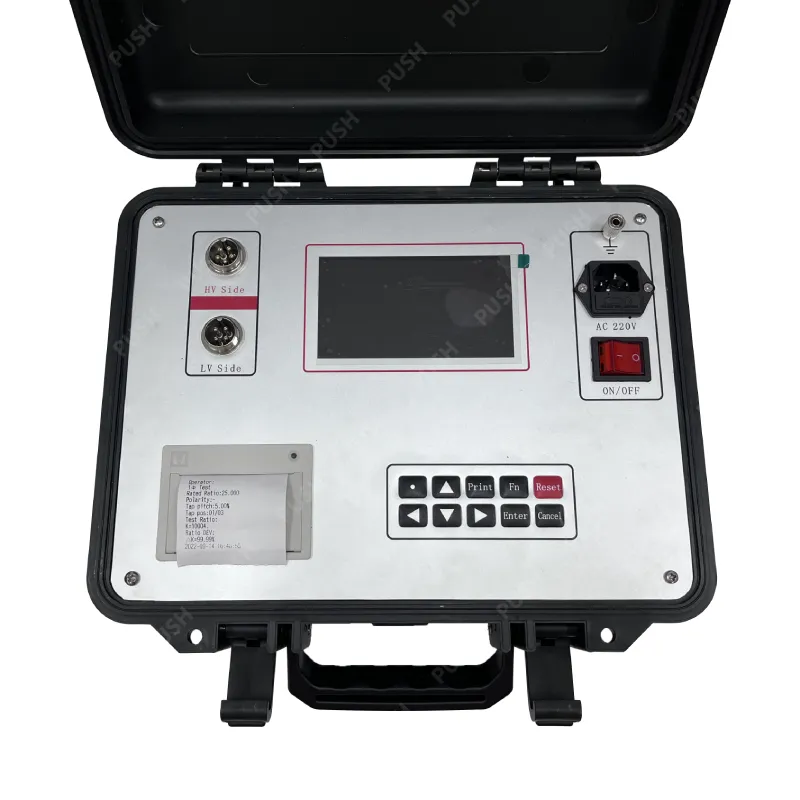 English
English


Advancements in Gas Chromatography-Mass Spectrometry Techniques for Enhanced Analytical Applications
Gas Chromatography-Mass Spectrometry An Overview
Gas chromatography-mass spectrometry (GC-MS) is a powerful analytical technique that combines the physical separation capabilities of gas chromatography with the mass analysis capabilities of mass spectrometry. This technique is widely used in various fields such as environmental monitoring, food and flavor analysis, pharmaceuticals, and forensic science due to its high sensitivity and specificity.
Understanding the Principles of GC-MS
To comprehend the significance of GC-MS, it is essential to break down its two main components gas chromatography (GC) and mass spectrometry (MS)
.1. Gas Chromatography (GC) Gas chromatography is a method used to separate volatile compounds in a sample. The sample is injected into a heated inlet where it is vaporized and carried by an inert gas (usually helium or nitrogen) through a column packed with a stationary phase material. As the sample travels through this column, different compounds interact with the stationary phase to varying degrees, leading to their separation based on their boiling points and affinities for the stationary phase. The separated components then exit the column at different times, known as retention times.
2. Mass Spectrometry (MS) Once the compounds exit the GC column, they are introduced into a mass spectrometer. In this device, the molecules are ionized, producing charged particles (ions). The ions are then accelerated and sorted according to their mass-to-charge ratio (m/z) in a mass analyzer. The resulting mass spectrum provides information about the molecular weight and structure of the analytes, enabling scientists to identify the compounds present in the original sample.
Applications of GC-MS
gas chromatography ms

The versatility of GC-MS allows it to be utilized in various sectors
- Environmental Analysis GC-MS is instrumental in detecting pollutants and contaminants in air, water, and soil samples. It can quantify trace levels of volatile organic compounds (VOCs), pesticides, and other hazardous substances, aiding environmental protection efforts. - Food and Flavor Testing In the food industry, GC-MS is utilized for analyzing the composition of food products. It helps in identifying flavors and aromas, determining authenticity, and detecting food adulteration. For example, it can analyze essential oils, herbs, and spices to ensure quality control. - Pharmaceutical Analysis In pharmaceuticals, GC-MS is critical for drug development and quality assurance testing. It is used to identify active pharmaceutical ingredients and monitor impurities, which is vital for ensuring patient safety and compliance with regulatory standards.
- Forensic Science GC-MS plays a crucial role in forensic investigations. It is employed in toxicology to analyze biological samples (such as blood or urine) for the presence of drugs, alcohol, and poisons. The high sensitivity of GC-MS allows for the detection of substances at very low concentrations, which is necessary in criminal investigations.
Advantages of GC-MS
The integration of gas chromatography with mass spectrometry offers several advantages. It boasts high resolution and sensitivity, enabling the detection of trace amounts of substances in complex mixtures. The ability to provide both qualitative and quantitative analysis is another significant benefit, making it a robust tool for researchers. Additionally, its automation and computerization facilitate high-throughput analyses, increasing efficiency in laboratories.
Conclusion
In summary, gas chromatography-mass spectrometry is an essential analytical tool that has revolutionized the way scientists separate and analyze complex mixtures. Its ability to provide detailed chemical information with high precision makes it invaluable across various industries. As research continues to advance, the capabilities and applications of GC-MS will undoubtedly expand, further solidifying its place in modern analytical chemistry.
-
Differences between open cup flash point tester and closed cup flash point testerNewsOct.31,2024
-
The Reliable Load Tap ChangerNewsOct.23,2024
-
The Essential Guide to Hipot TestersNewsOct.23,2024
-
The Digital Insulation TesterNewsOct.23,2024
-
The Best Earth Loop Impedance Tester for SaleNewsOct.23,2024
-
Tan Delta Tester--The Essential Tool for Electrical Insulation TestingNewsOct.23,2024





